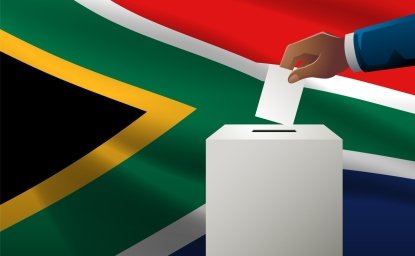Shaping Burundi's Future
Africa Program Director Howard Wolpe describes the political opening that led to the creation of the Burundi Leadership Training Program and some of the challenges that remain for Burundian leaders.
Africa Program Director Howard Wolpe describes the political opening that led to the creation of the Burundi Leadership Training Program and some of the challenges that remain for Burundian leaders.
When I first visited Burundi in 1995, I was overwhelmed by the omnipresent sense of fear and insecurity. War was raging in the countryside, a campaign of intimidation and assassination was being waged against Hutu members of the National Assembly, and Hutu neighborhoods in the capital city of Bujumbura were being "ethnically cleansed."
The ethnic polarization was so sharp that one even hesitated to use the ethnic labels of "Tutsi" and "Hutu." Any Burundian who advocated negotiations was instantly condemned as a traitor or worse.
But, today, talk of negotiations is no longer taboo. In fact, people who not long ago were mutually demonized as "genocidaires or "putschists" have negotiated power-sharing agreements and are collaborating in the transitional government. The most sensitive and difficult issues are now on the table and one can talk candidly of Burundi's ethnic divide.
Yet Burundi remains an unstable country. One rebel group still refuses to enter into negotiations or to suspend hostilities, and deep-seated mistrust and inter-group suspicions remain among political leaders. The Arusha Accord-signed by 19 Burundian delegations-established the foundation for a new transitional government, but the Accord was the product as much of external pressure as of Burundian agreement. It also left unresolved many difficult issues, such as the integration and reform of Burundian security services and how to handle amnesty or immunity from prosecution for past crimes. Most crucially, Burundians responsible for guiding the country's post-war economic reconstruction still tend to see themselves as adversaries involved in a zero-sum game, rather than as partners engaged in a common enterprise.
It is this political environment that the Burundi Leadership Training Program seeks to transform. BLTP aims to build trusting relationships among the leaders who will shape Burundi's future and to shift the Burundian paradigm so that the country's leaders begin to recognize their interdependence.
The challenge in post-conflict situations is to help the parties to identify win-win possibilities, in which they view enlightened self-interest as inextricably linked with the welfare of the wider community. Only then can Burundians move from blame throwing to problem solving, from adversarial confrontation to a search for common ground.

The Africa Program works to address the most critical issues facing Africa and US-Africa relations, build mutually beneficial US-Africa relations, and enhance knowledge and understanding about Africa in the United States. The Program achieves its mission through in-depth research and analyses, public discussion, working groups, and briefings that bring together policymakers, practitioners, and subject matter experts to analyze and offer practical options for tackling key challenges in Africa and in US-Africa relations. Read more



